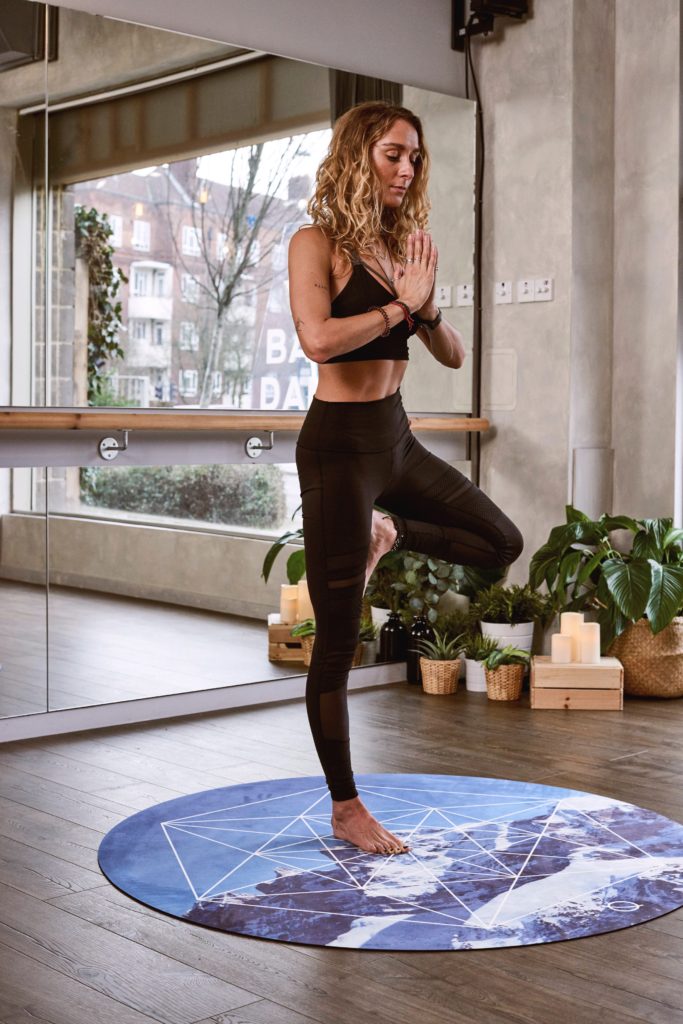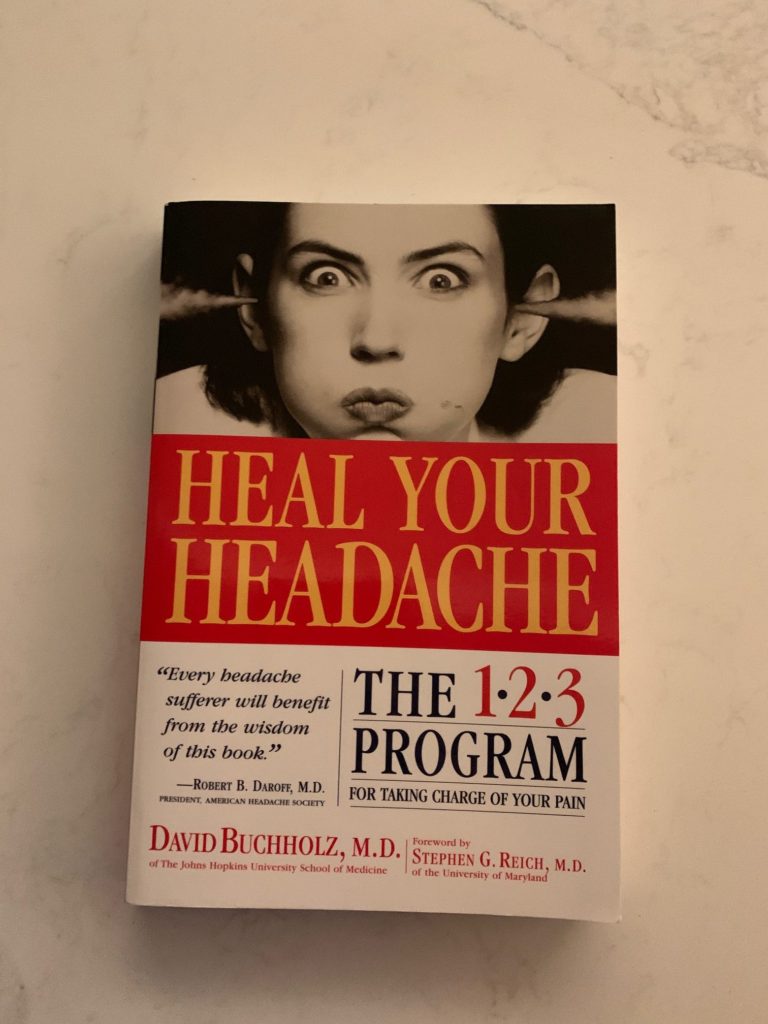Let’s talk migraines for a minute shall we? Anyone who is prone to migraine headaches know how debilitating they can be. Migraine is a neurological condition affecting 10% of the world population and women are three times more likely to get migraine headaches. For myself, I started having migraines as a kid, maybe 10 years old. Migraines in my 20’s, 30’s and early 40’s sometimes resulted in emergency room visits because of the pain and neurological symptoms that would ensue. This might be TMI but I can only explain the pain as this…I had natural childbirth, no pain meds, and I would rather go through the birthing process again than have a full blown migraine. I’m totally serious here… no lie! It is literally the worst pain I have ever felt in my life!
Those who battle migraines lose time at work, time with family, and missed social engagements because the excruciating pain is too much to even stand up or tolerate any noise at times. I am very familiar with the challenges of dealing with migraines and have spent years working to find solutions that worked for me. Migraine no longer controls my life. I can now say I rarely have a full blown migraine attack. If I get them anymore, it is mostly from triggers that are hard to control such as weather, barometric pressure changes, climate adjustments, or hormonal shifts in my body.
Below I share information with you I have learned about managing migraine. I also explain how my migraine symptoms have changed over the years. I found solutions that have worked to almost eliminate debilitating migraines from my life. How do I type the sounds of clapping, cheering and sheer joy? Those are the sounds you would hear if this blog had sound because I’m so happy I have had success in managing migraines!
Migraine Symptoms
Migraine symptoms can be some of the following but each person is unique in symptoms:
- Severe throbbing pain in the head usually behind one of the eyes.
- Sensitivity to light, sounds or smells
- Nausea, vomiting
- Body pain, dizziness
- Visual changes, auras, flashes of light
Migraine Solutions
I look at migraine solution two fold. First, to figure out what causes your migraine or what are your triggers so you can make lifestyle adjustments. Keep a journal for a few months recording things such as how you feel each day, weather, foods you eat, activity level, how much sleep you got, etc. A huge part of the solution for migraine is learning lifestyle choices to better equip the body for optimal performance and avoiding a migraine altogether. The second part of migraine solution is having a plan and knowing what works for you when a migraine does happen to hopefully put it to a stop. Even with your best efforts of lifestyle choices, it’s best to have a plan, know how to get through the migraine, how to make it less severe or go away entirely.
I know what my early warning signs of migraine are and can tell if it is going to be a mild one or one that will shut me down for a day or two. When I have pain migraines, here are things I have found that work very well for me and how I avoid visits to the emergency room:
- Maxalt, triptan- prescribed medication. A dissolvable tablet taken orally as soon as I know a major migraine could be happening. I call it my rescue medicine. I only take it if I really feel I need to and if taken early enough it will stop the migraine. I like it because it is fast acting, no major side effects, and I only take it as needed.
- Benadryl. In the past when I would go to the emergency room during major migraine attacks, they would give me benadryl along with other things. So in extreme situations when the migraine attacks were severe, I would take a benadryl at home and lie down to sleep.
- Instead of taking the prescription maxalt, I sometimes try Excedrin migraine OTC medicine. That one can sometimes do the trick and not have any sluggish side effects afterwards.
- PLEASE NOTE: When I opt for medication to get rid of the migraine, I pick one of these I mentioned above…not all three. I decide which one is best based on what led up to the migraine and the signs my body is giving me. I can normally tell what kind of migraine I am getting (migraine with aura, regular migraine, etc.) and determine the best plan for me.
- Lie in a dark room and try to sleep it off. When I wake up after taking maxalt, that usually does the trick and I can avoid vomiting and becoming severely dehydrated.
- Lavender essential oil or sometimes peppermint oil diffused in the room or I dab some on my chest and temples of my face.
- Anything that brings you comfort or relaxes your nervous system. Heating pad against your body, play low volume soft spa like music, cool cloth on forehead.
If my body is showing signs of a mild migraine coming on, I have found the following to work really well and I can avoid taking ANY pain relievers or medicine. You have to be careful with not getting caught in the cycle of “rebound headaches” if you take over the counter like Tylenol, ibuprofen or prescription medication. That is why I worked so hard to find ways to solve my migraine issue without using any medications.
RELATED: The Importance of Personal Down Time
- Caffeine- just about a cup. A small coffee sometimes does the trick.
- All of the homeopathic methods such as essential oils, taking a hot bath, laying down to rest, cool cloth on the forehead.
Silent Migraines
In my mid 40’s, my migraines took a turn and after numerous neurological doctor appointments, other specialists, MRI’s, spinal taps, etc., it was discovered that my migraines had evolved into what is called Silent Migraines. Weird sounding I know…even I rolled my eyes when I first heard about it. The diagnosis answered so many questions and explained my new symptoms which were a host of neurological symptoms such as facial paralysis, temporary loss of eyesight, blurred vision, aura’s, numbness along one side of my body, temporary change in my walking gait, speech impairments, feeling of disorientation all the while I had NO head pain. Until we learned what exactly was going on, it was a scary time and demanded a lot of patience and understanding from my husband when I would be having the silent migraine attacks. I am so grateful for his patience. At times, I looked as if I was having a stroke, my face would droop, and I couldn’t talk or find the words to answer his questions. He had the much scarier part of watching it all happen to me. The first time I saw myself in a mirror while a silent migraine was happening and it was a shocking moment for sure! So my body was experiencing intense migraine symptoms, yet no head pain. Over a couple years, doctors had done so much testing to rule out other more concerning illnesses or neurological issues. All the results always came back perfectly clear and thus we landed finally on the silent migraine. Who knew that was even a thing?!?! I surely didn’t! This process of figuring out what I was going though has taught me so many ways to build a healthy lifestyle that supports my body, mind and spirit. Once I consistently implemented the practices, foods, supplements and methods of self care into my daily life, even silent migraines are now far and few between! It didn’t happen over night, but I am proof that listening to your body and exploring all avenues, does eventually work.
I rarely battle migraines (pain or silent) any more. I’ve learned I am sensitive to major weather changes (storms are not my friend!) or prolonged extreme temperatures, hot or cold, are big triggers for me. My body likes consistency and when I veer too far from that I put myself more at risk for a silent or pain migraine. Lifestyle choices are fundamental for managing or eliminating migraine from my life. Below are things I have found worked very well for getting rid of migraine:
- Vitamin B2 daily. I noticed this supplement greatly reduced the amount of headaches I would have. Once I got this consistently in my body, it was a game changer!! When I am spreading myself thin, burning the candle at both ends per say, or weather patterns are having major changes, I sometimes add a bit more B2 to my daily diet.
- Probiotic daily along with multivitamin, and B12.
- Vitamin D plays a huge role in our neurological efficiency. I monitor my vitamin D level often having lab work done about every 3 months. I tend to run low on vitamin D so there are times I add that into my daily regimen as well.
- Paying attention to how my body feels. Keeping my nervous system smoothed out and calm. Sometimes that is as simple as doing some deep breathing techniques.
- Meditation
- Yoga. So many types of yoga to find one that works for you. Please don’t think restorative yoga won’t be of much help. It is perfect for strengthening the body and nervous system.
- Practice deep breathing techniques. Mindful breathing meditation.
- Practicing a lot of self-care such as making sure I have daily quiet time.
- Incorporating activities I find relaxing and enjoyable into each day.
- Consistent times of going to bed and waking up.
- Eating nutritious food on a consistent schedule and often- throughout the day; choosing foods that support good health and give me energy.
- Getting regular massages help in keeping the nervous system relaxed.
- Drinking a lot of water
- Essential oils: diffused in my home, applied to the skin, or in my bath.
- Consistent evening/bedtime rituals: hot bath, herbal tea, reading, or listen to a guided meditation.

My final thought I’d like to share if you experience regular migraines is, I would strongly encourage you to learn more about the vagus nerve. It is the longest cranial nerve of the autonomic nervous system and oversees a vast array of our bodily functions. Stress and fatigue play a big part in the function of our vagus nerve and doing simple things such as slow, deep breathing can help the functions of the vagus nerve. There are many resources available to read more about how to support the vagus nerve in our body. There is also specific yoga poses that assist in supporting the vagus nerve function. I attended a yoga workshop last year specifically on the function of the vagus nerve and learned how yoga can aid in healing and supporting the nervous system. My depth of understanding shifted dramatically after taking this class which is why I encourage you to read up on the vagus nerve and connection to migraine.
I hope the information I have shared help those with migraine. Feel free to share in comments tips and tools you have found helpful in overcoming your migraines because you just never know whom it might help!

A book I recommend regarding migraine. Heal Your Headache by Dr. David Buchholz, M.D.

